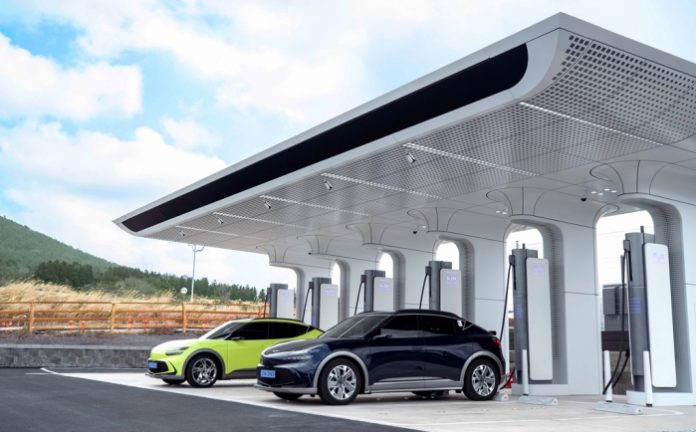Hyundai is looking to challenge Tesla’s dominance in the electric vehicle charging front with new technological upgrades and a proprietary network of stations.
Tesla is one of the only charging providers on the market to see positive reviews from drivers. Most brands in the sector have seen customer satisfaction scores decline in 2023 as EV owners continue to experience higher levels of station outages, charging issues and long wait times. The car manufacturer’s Superchargers have become so popular that most automakers have now signed deals with the Elon Musk-led brand to incorporate the North American Charging Standard (NACS), the company’s unique charger system, into their own models, giving non-Tesla drivers access to the once-closed network. Hyundai, along with its subsidiaries Kia and Genesis, is one of the few OEMs left unaligned with the NACS.
Instead, Hyundai is hoping to beat Tesla with its own advanced charging network, at least in South Korea. In 2021, the automaker introduced an electric vehicle charging brand titled E-Pit, through which it has since installed 36 of 120 planned stations. While the rollout of the network has been slower than expected by the car manufacturer, it has now developed a new and improved electric vehicle charging system with a capacity of 350 kW that could help attract EV drivers away from charging competitors. For comparison, Tesla’s current generation of Superchargers offers a capacity of 250 kW, although the company is also planning to launch 350 kW chargers in the near future.
While competition between the two automakers at present remains confined to South Korea, it represents the first major challenge to Tesla’s dominance in the electric vehicle charging sector since automakers began to integrate the NACS earlier this year. Should the move prove successful, it may challenge the status quo in North America as well. But even if E-Pit can launch its 350 kW stations first, the brand still faces an uphill battle even in its home country. Tesla operates far more Supercharger stations in South Korea (106 to be exact) than Hyundai and, as is the case in most parts of the world, commands a majority of the nation’s EV sales. The Kia and Genesis parent will not only need to provide frustrated EV drivers with a superior experience, but it will also need to scale as fast as possible if it hopes to be a serious contender in the international charging industry.





